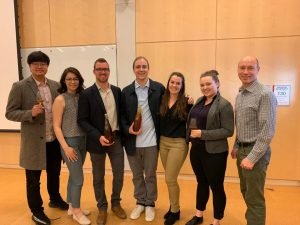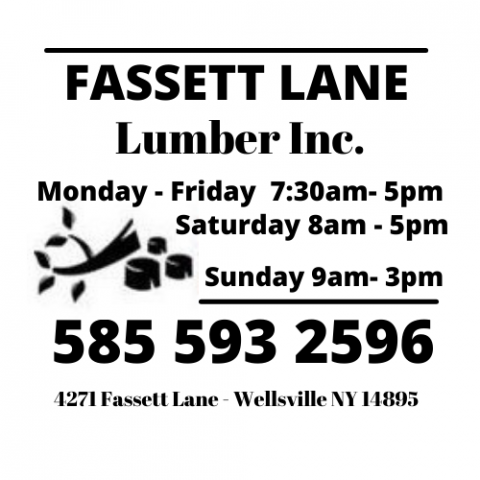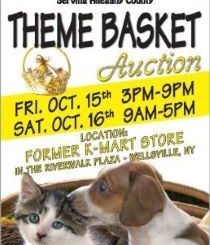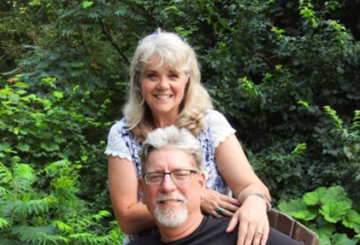Meet, or be re-introduced to a very interesting graduate of Wellsville High, Class of 1993. Aaron Wightman now lives in the Ithaca NY area and works for Cornell University as a director of The Cornell Maple Program. This fascinating interview with Aaron is perfect timing as locals collect maple sap and make syrup.
Since, tis the season, tell us about “sugarbush management” and your role in that universe.
Wightman: I am the NY state maple specialist and co-director of the Cornell Maple Program which is a research and extension program within the department of natural resources at Cornell University. The maple program exists to support the sustainable growth of the maple products industry. In my role I provide leadership in planning, developing, coordinating and implementing state-of-the-art educational programs and innovative applied research projects. I also lead a team of technical and professional staff and oversee operations at Cornell’s Arnot Research Forest which is a 4,200 acre research forest near Ithaca, NY. I maintain a 7,500 tap research sugarbush at the Arnot and recently secured $650,000 in grants to build a maple research laboratory. Slated for completion next month, this facility will be the best equipped maple research center in the United States. I work closely with my co-director, Adam Wild (originally from Cattaraugus County), who manages our sister facility in Lake Placid, NY.
To your specific question about sugarbush management: A “sugarbush” is a forest that maple sap is collected from to process into maple syrup. A sugarbush is unique compared to other cropping systems because it is an intact ecosystem that provides other services such as water filtration, nutrient cycling and wildlife habitat.
To understand the significance of this approach, compare maple to the cropping systems used to produce the three most common sweeteners in the United States: cane sugar, beet sugar, and high fructose corn syrup. Each of these first requires the clearing of land and heavy tillage of the soil to establish monoculture crops which are then heavily fertilized and treated with pesticides. These chemicals, along with the exposed topsoil, end up in waterways and contribute significantly to “non-point source” pollution. Once these crops are harvested, they undergo an energy intensive refinement process. Compare that to maple where the sugarbush is essentially an undisturbed forest that reduces pollution rather than contributing to it. Sap is then processed with modern technologies such as reverse osmosis that really limit the carbon footprint.
So, the sugarbush is a resource with current value in terms of sap production, future value if we keep it healthy and productive, and positive external values that motivate ethical consumers to purchase maple syrup in place of other sweeteners. The value of the sugarbush provides incentives for maple producers to sustainably manage their woods and improve the health and quality of the forest ecosystem. The most direct example of my work in this area is a large study at the Arnot Research Forest where we thinned an existing sugarbush and surrounded 30 acres with a deer fence. The idea behind the study was to release the residual maple trees from competition on 2 or 3 sides by cutting nearby trees. By reducing the stand density by 2/3 we hope to increase the sugar output of the remaining trees through increased growth and vigor. At the same time, the reduced density allows enough sunlight to reach the forest floor to support natural regeneration of the stand. This study is in year 3 with promising results, so far.
Another example is a program I recently launched in collaboration with the NY Audubon Society and the Cornell Lab of Ornithology. The Bird Friendly Maple Program sets forth management guidelines for improving habitat quality for forest breeding birds like the scarlet tanager and black throated blue warbler. The guidelines include requirements for retaining a diversity of tree species and coarse woody material on the forest floor. Maple producers who meet these guidelines and have a forest management plan to continue improving bird habitat can have their maple syrup certified as “bird friendly.” Presumably, bird enthusiasts will be more likely to purchase this syrup based their interest in supporting healthy bird populations:https://ny.audubon.org/conservation/bird-friendly-maple
Another research topic I am involved with is the concept of agroforestry – in other words, growing multiple crops in the understory of a forest. Last year we established a small demonstration plot in the Arnot Forest where we have pawpaw trees planted in the understory of a thinned sugarbush. This spring we plan to add native berry crops such as aronia, serviceberry and elderberry. I am part of the Agroforestry Program Work Team at Cornell which is a loosely affiliated group with a shared interest in agroforestry. We are bouncing around many ideas for future research, so lots more coming on this topic in the near future…
My bigger research initiatives revolve around new product development. I work closely with food scientists at Cornell and numerous industry collaborators to develop novel, high-value maple products. The recipes and processes we develop are all shared in the public domain with the goal of lowering the barriers of entry into new markets for maple producers. Some of the products we have developed include maple wine, beer, kombucha, sports gel, soda, chocolate, and marshmallows. Much of the $3.2 million in grants I have secured in the past three years is directed toward this topic. Retail maple syrup is roughly a $60 million per year industry in the US. Compare that with the $4.5 billion in annual economic activity from wine in NY, the $200 billion alcoholic beverage industry and the $250 billion candy industry. These are markets we aim to break into with maple syrup.

Did you and your family do maple syrup growing up?
Wightman: We did and still do. My father’s family had a sugaring operation at our family farm on Wightman Road for many years. I have vague happy memories of boiling sap there as a toddler. Later, my parents bought 65 acres in the town of Willing and we began sugaring there in the 80’s. It’s a modest operation with about 450 trees tapped, but we always make excellent flavored syrup. I always enjoyed making syrup and spending time with my family, but never did I dream this would become my life’s work. After all the expensive schooling and fancy ivy league degree, the education that has been most valuable in my life came from my dad in our little sugarhouse. It’s really been a remarkable journey and I feel privileged to be in this role to help others get started in maple and grow their businesses.
How many days a week do you eat maple syrup?
Wightman: It’s a daily staple, of course, beginning with the morning cup of coffee. I also enjoy cooking savory dishes with maple syrup including roasted vegetables and fish dishes. Caramelized syrup goes very well with salty meats and vegetables. I also find a glass a maple milk very refreshing. It’s like chocolate milk but with maple syrup instead of chocolate syrup. Simple and delicious.
You spent some time on an ‘isolation vacation’, a Thoreau inspired journey of sorts. What was that like and where did you spend that time?
Wightman: I recently had the opportunity to move to a rustic cabin surrounded by 6,000 acres of forest land. Writers and philosophers like Thoreau, Walt Whitman, Annie Dillard and Aldo Leopold were really influential in shaping my worldview and ideology as a young man. So, the idea of paring down my own life and living simply was irresistible. Now I can’t imagine going back to a conventional modern existence. I love the peace and simplicity of this life. I read books, play guitar, write music, bird watch, star gaze and find tremendous clarity in the solitude. It’s also helpful to have an understanding partner. My companion, Sara, is a Marine Corps veteran who grew up in Nepal and Japan, among other places. She is always up for adventure and new experiences, including roughing it in the woods.
As a class of 1993, give us a snapshot of what Wellsville was like for you? Tell us about a highlight from Wellsville High School…..
Wightman: Living in a small town has its pros and cons. I think we are very fortunate in Wellsville to have a robust school system and an amazing public library. Something else I appreciate more and more is the deep connections within the community. My parents have hundreds of friends and an incredible social life. My favorite highlight from high school is super nerdy – but I really enjoyed being on the debate team with Matt and Caitie Pickut, Brad Austin and Jane Schaffner. Nerdy kids like me didn’t have a lot of bonding opportunities, so I have many special memories from that experience.
You have a pretty popular podcast at Cornellmaple.com. How often to you broadcast from that channel?
Wightman: We just started the maple podcast “Sweet Talk: All things maple with Aaron and Adam” this fall in an effort to connect with new audiences. The show is funded through USDA Agricultural Marketing Service grant. We hope to publish at least one episode per month on a wide range of topics that highlight cutting edge research in maple production, forest management and food technology. The podcast is available through all the major podcast services
The mission behind your work was described as an effort to “provide information to aid distressed rural economies”. Can you give us a more detailed picture of that mission?
Wightman: Natural resource management is inextricably tied to social and economic issues. In recognition of that reality, I orient my work toward the delivery of real-world outcomes on the ground. Every year I give dozens of workshops across the state to directly interact with my stakeholders and form personal relationships with them. Cornell is a land grant university which means it has an institutional mission to teach practical agriculture in NY State. I view myself as a public servant rather than an academic and measure my success in terms of well managed forests, profitable maple businesses and healthy local economies. My highest goal is the translation of my research into improvements in daily living for rural New Yorkers. In fact, this fall I hope to begin my PhD in the field of conservation social sciences with the goal of building better tools for supporting natural resource economies.
There a quite a few Allegany county folks reading this and boiling sap today. Do you have one piece of advice to give them right now that can improve this year’s production?
Wightman: For folks who are serious about maple production, I strongly recommend joining the NYS Maple Producers’ Association, or at least building working relationships with fellow maple producers. Maple syrup is a regulated industry with best practices and guidelines that are important to understand. Syrup must be properly graded according to the recently updated grade standards to be legal for sale. So, definitely get in touch with people and resources that will help you understand the rules. Also, if you’re sick of boiling all night long, look up “Cornell small scale reverse osmosis” on YouTube to find instructions to build your own reverse osmosis unit and cut your boiling time by 75%!
Your parents have always been a big part of Wellsville’s community and culture(Tina and Ron Wightman). Was service to the bigger picture instilled in you by edict or osmosis?
Wightman: My parents are rock solid. They have always provided gentle guidance, positive encouragement, and a good example. They instilled me with values that I deeply appreciate and helped me understand what it means to live a good life – be happy and do good works. I talk to them almost daily and can’t wait for the pandemic to end so I can visit again!
How is your sisters? Does the whole family have free syrup for life or what?
Wightman: Funny you should ask. Heather is a rare documents dealer in NYC, which is super interesting and impressive. What’s equally exciting to me is the backyard maple syrup operation she has at her home just outside the city. She has the Norway maples in her yard tapped with buckets and has made a nice little crop of syrup this year. My sister, Teresa is in the Buffalo suburbs and doesn’t have a sugaring operation…..yet.
Now the question every WHS graduate must answer: Who was your favorite teacher?
I had many great and talented teachers in Wellsville, but if I must choose one, I will single out Mr. Howitt. He always struck the right balance of command presence, humor, and subject matter expertise. I was truly inspired by his teaching and learned a great deal about history and current events from him. And of course, I still remember the oath he made us memorize: “All that I am, all that I’ll ever be, I owe to my 9th grade global studies teacher who wishes to remain anonymous, sir!” Thank you, Mr. Howitt!







